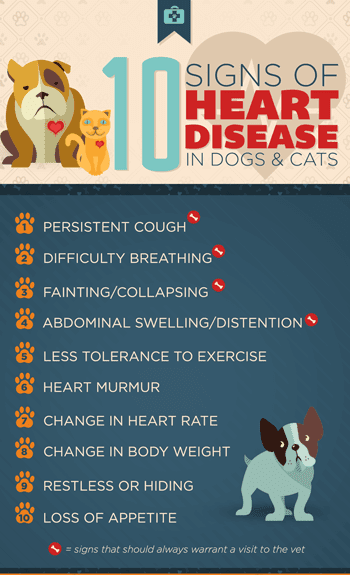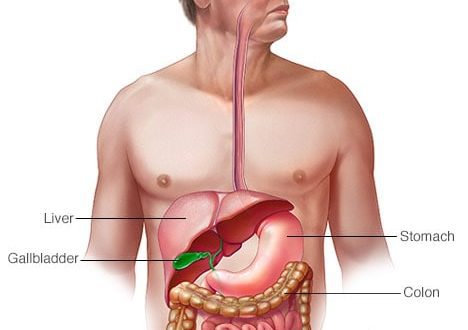
Heart Disease in Dogs: Causes and Facts
Your dog has a “big heart” – and this does not depend on its size. Dogs have a certain personality type, they are the most loyal friends and always know when you are sad. And dogs can suffer from a variety of heart conditions, one of which is an abnormal enlargement of the heart.
Contents
What do we call cardiovascular disease in dogs?
Heart disease is certainly a problem, but it can be managed. The heart is the most important organ in a dog’s body. It pumps oxygen-containing blood and nutrients through the blood vessels to the body’s cells. Most heart disease is associated with a decrease in the efficiency of pumping blood. This can lead to a buildup of fluid in the chest and abdomen. There are two main types of heart disease: some affect the heart valve and others affect the heart muscle. In both cases, these conditions can be managed by providing the pet with proper nutrition and exercise regimen. If necessary, the use of veterinary drugs may also be required. Properly selected food and advice from a veterinarian will help your dog lead an active life and enjoy every moment of it.
Two main types of heart disease
Chronic valvular disease: the heart valve through which blood flows reduces the amount of blood that can enter the body.
Diseases of the heart muscle: a weakened or thickened heart muscle reduces the efficiency of pumping blood.
What are the causes of heart disease?
It is impossible to name any one single reason, however, it is worth noting that poor nutrition can very likely lead to the development of cardiovascular diseases. Aging is the most common cause of heart disease in dogs, although other factors, such as the presence of heartworms, may also play a role. Other risk factors include:
Physical state. Overweight dogs are more likely to develop heart failure.
Age. The older the dog, the more likely it is to develop heart disease.
Breed.Chronic valvular disease is more common in small dogs such as miniature poodles, cocker spaniels, spitz and schnauzers. Diseases of the heart muscle are most common in dogs of large breeds: Great Danes and Irish Wolfhounds.
Does your dog suffer from heart disease?
It is rather difficult to answer this question, since the signs may be similar to those observed in other diseases. Your veterinarian may examine your dog for cardiovascular disease using the following methods:
- Listen with a stethoscope for murmurs or accumulation of fluid in the lungs.
- By palpation, unusual pulse rhythms can be detected.
- Use an x-ray or ultrasound to determine if the heart is enlarged.
- The ECG will show an enlarged heart and an abnormal rhythm.
- Blood and urine tests will show the presence of heartworms, worms and the condition of other internal organs.
Symptoms that may indicate the presence of cardiovascular diseases:
- Fatigue, loss of strength.
- Fainting or loss of consciousness.
- Frequent cough. In some cases, a dull cough, which sometimes causes a gag reflex.
- Difficulty breathing, including shortness of breath.
- Reduced ability to exercise physical activity.
- Decreased appetite and/or marked weight loss/gain.
- Bloating of the abdominal cavity.
IMPORTANT. The presence of heart disease is difficult to determine at an early stage. For questions related to the health of the dog, it is necessary to consult with a veterinarian.
Treatment: the importance of nutrition
Although it is impossible to completely get rid of heart disease, a dog can still live a relatively normal life. The food your pet receives plays an important role in their health and well-being. With heart disease, feeding your dog properly is even more important.
Cardiovascular disease tends to cause the heart to enlarge, and this enlargement results in a decrease in the efficiency of the heart. The heart begins to retain more fluid than it should, and this is where the real problems lie. For this reason, veterinarians recommend using low-sodium foods to help reduce fluid buildup and make the heart work easier.
For an accurate diagnosis and treatment options, always consult your veterinarian for recommendations on the best food for a dog with heart disease.
Ask your veterinarian about heart disease:
- What food is suitable for a dog with heart disease?
- How can human food affect your dog’s health?
- Which Hill’s Prescription Diet would you recommend to support my dog’s heart health?
- How much food and how often to give the dog?
- How soon should I expect my dog to show signs of improvement?
- Can you provide me with written instructions or a brochure about my dog’s heart condition?
- What is the best way to contact you or your clinic if I have questions?
- Ask if your pet will need to be scheduled for a follow-up appointment.
- Ask if you will be sent a reminder for your next appointment.





